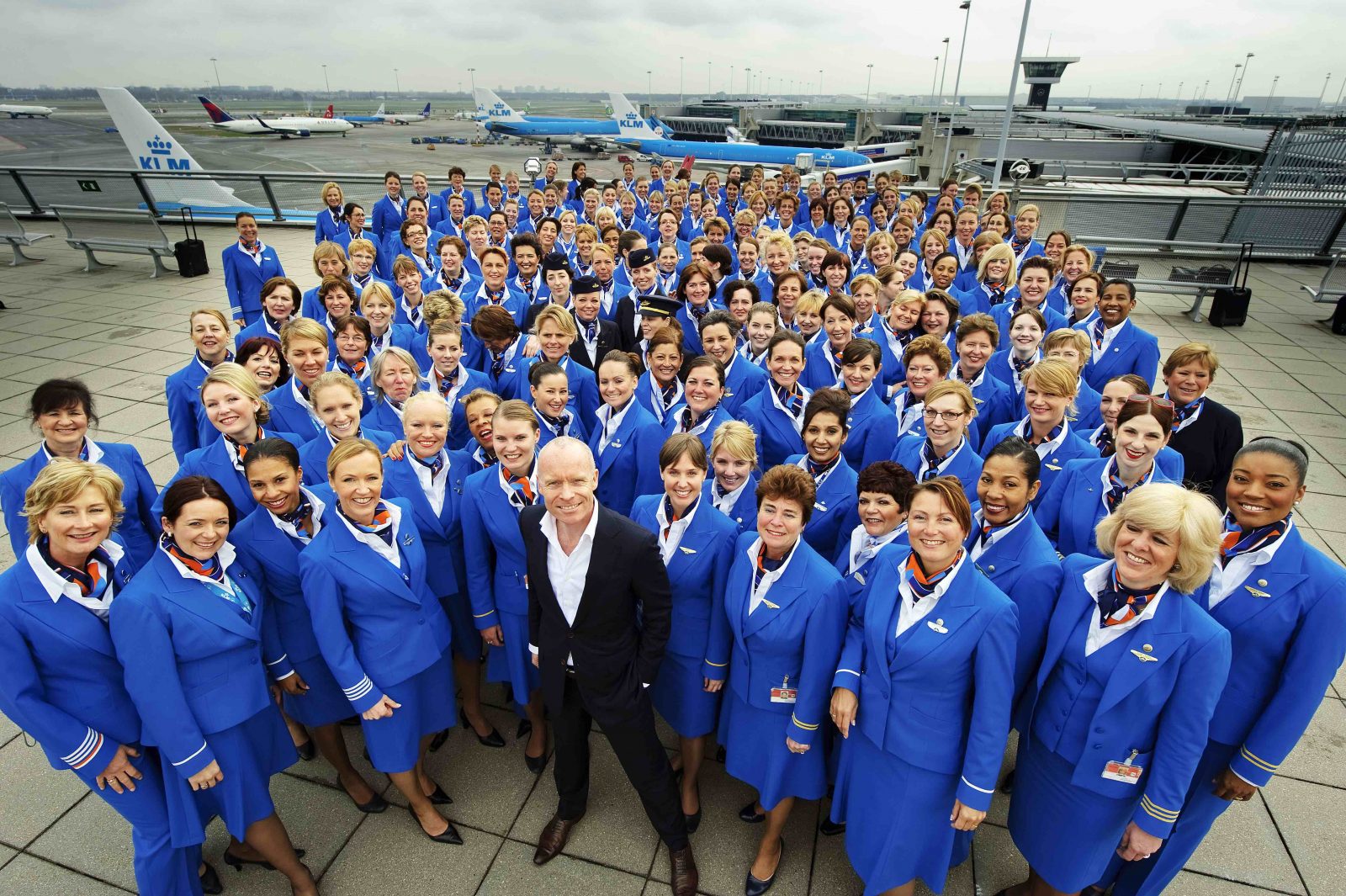
A long-running dispute between cabin crew and management at Dutch airline, KLM could soon be over after a new collective labour agreement was agreed in principle. The airline today announced a deal had been struck with the VNC Union which represents around 70% of Cabin Attendants at the airline – and is hoping a second union, FNV Cabine will “embrace the plan.”
Over the last few weeks, the airline has been locked in talks with VNC in an attempt to break a deadlock between the two sides. Things started to get really heated when FNV Cabine called a one day strike which was due to take place on 8th January – VNC refused to join the action and in the end, the walkout was called off at the last minute.
The VNC has said its council of members overwhelmingly support the deal and is recommending KLM cabin crew vote ‘yes’ to the proposal. If accepted, the agreement will remain in place until June 2019.
The deal covers a whole host of issues, including pay and time-off, but what has really upset cabin crew at the airline is KLM’s policy to remove a cabin attendant from the Economy cabin on certain long-haul flights – known as ‘-1CA’.
Both unions demanded the -1CA policy be scrapped as a prerequisite to a deal, yet KLM has managed to come up with a compromise – describing it as “explicitly different” to -1CA yet still saying the crew complement on intercontinental flights “can” be dropped by one.
By international standards, cabin crew at rival airlines might be very envious with the deal KLM is offering. Here’s how it will work: each cabin attendant can only be expected to serve 52 Economy passengers. If the number of passengers goes above that quota, then an additional cabin attendant has to be added to the crew complement.

As a comparison, 52 passengers roughly equates to about a quarter of the Economy cabin on one of KLM’s Boeing 777-300 aircraft.
Passengers are likely to see a change in the onboard experience as KLM changes its service routine so that each cabin attendant is given a trolley with a maximum of 52 meal trays. The union says this will make the service quicker and pursers will be allowed to help – but only up to a maximum of 26 passengers.
The union has also managed to secure an increase in the minimum amount of in-flight rest given to cabin crew – above what is legally required within Europe. The below is based on the ‘block’ time rather than the flight time:
- <8 hours: Zero
- 8 – 9 hours: 45 minutes
- 9 – 10 hours: 1 hours
- 10 – 11½: 1.5 hours
- 11½ – 12½: 2 hours
- 12½ – 13½: 2.5 hours
- >13½: 3 hours
Importantly, the use of ‘high comfort’ crew seats will not constitute in-flight rest.
On top of that, KLM has agreed to award cabin crew a 3.5% pay rise by February 2019 and increase the number of allowances. Cabin crew will also be included in a company profit sharing scheme which they were previously excluded from.
For its part, however, KLM wants cabin crew to contribute to its ‘Perform 2020’ cost-cutting scheme which is designed to significantly lower costs at the airline.
Unfortunately, FNV Cabine isn’t so happy with the proposed deal. They say they will reject the deal and describe it as “far removed” from what they expected as a fair settlement.
Both unions will be meeting with the members over the coming weeks with a vote set to take place before February.
Mateusz Maszczynski honed his skills as an international flight attendant at the most prominent airline in the Middle East and has been flying ever since... most recently for a well known European airline. Matt is passionate about the aviation industry and has become an expert in passenger experience and human-centric stories. Always keeping an ear close to the ground, Matt's industry insights, analysis and news coverage is frequently relied upon by some of the biggest names in journalism.







